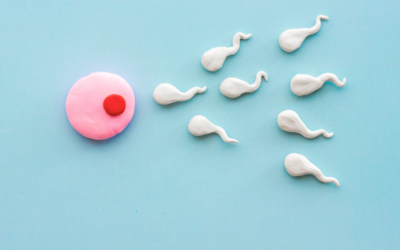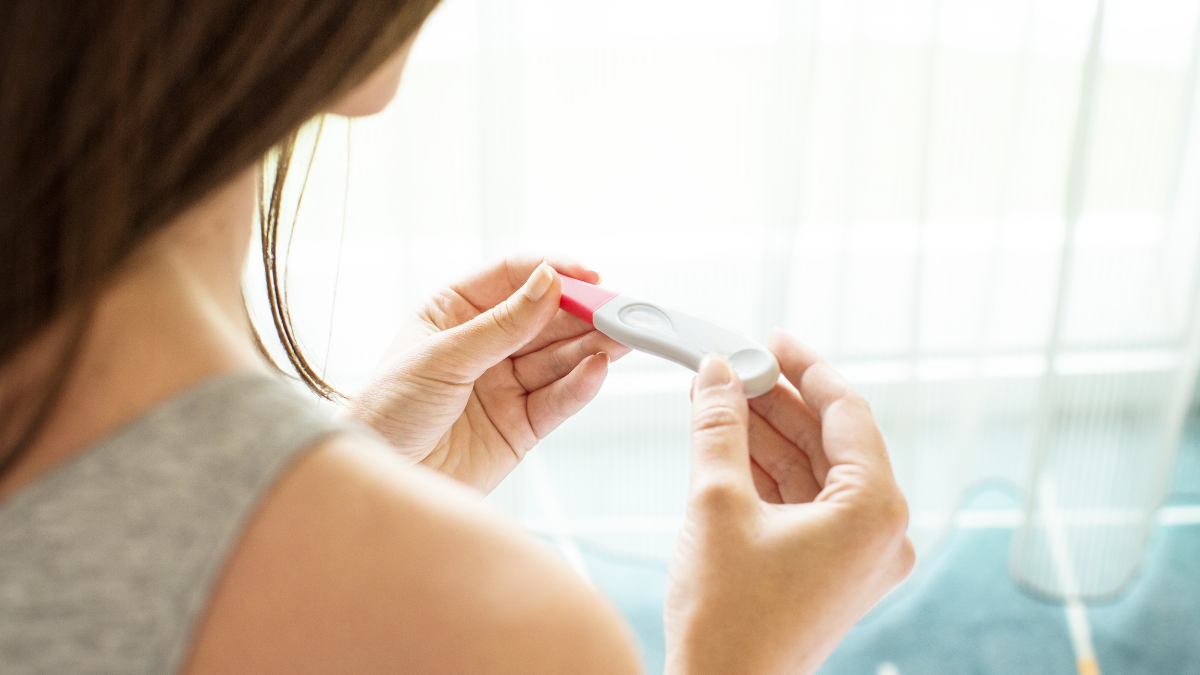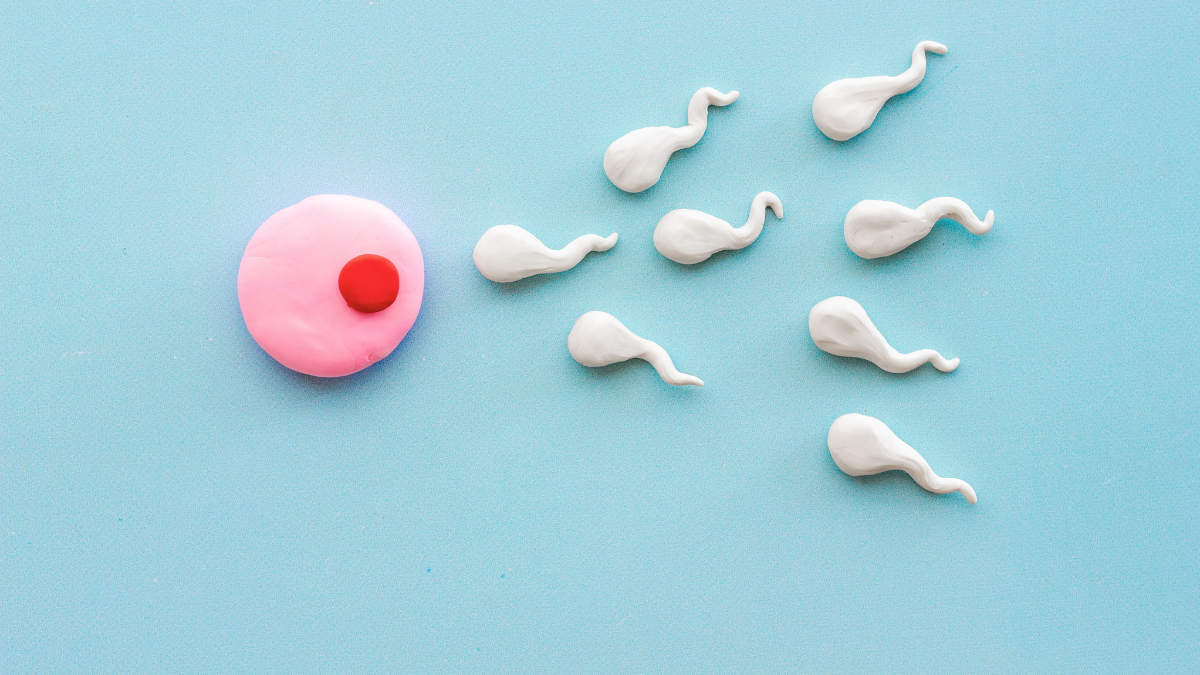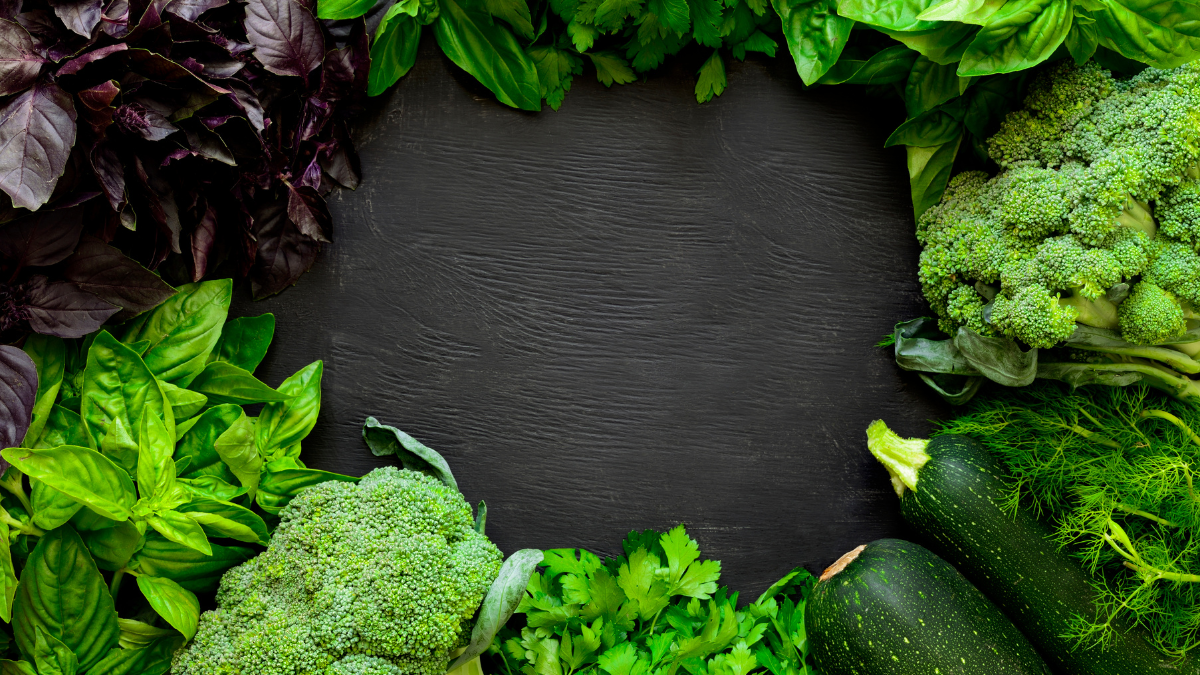Starting the journey to parenthood is exciting, but it can also feel overwhelming when every month seems unpredictable. The good news is that simple, science-backed changes in your daily routine can significantly improve your chances of getting pregnant. This guide shares 10 proven fertility tips that naturally support both female and male reproductive health.
These strategies focus on the essentials—balanced nutrition, hormone-friendly lifestyle habits, and smart timing—so you can create the best environment for conception without relying on complicated treatments. Whether you are just beginning to try or have been on this path for a while, these fertility tips will help you understand your body, boost egg and sperm quality, and reduce stress along the way.

By following these practical steps consistently, you not only increase the likelihood of conceiving but also lay the foundation for a healthy pregnancy. Let’s explore the 10 proven fertility tips that can bring you closer to your dream of holding your baby naturally and confidently.
Table of Contents
10 Fertility Tips to Boost Your Chances of Conception
Trying for a baby is exciting, but it can also feel like a puzzle. The following Fertility Tips are practical, science-backed, and easy to follow. They help support both female and male reproductive health, giving your body the best possible start for conception.
1. Track Your Ovulation Carefully
One of the most important fertility tips is learning exactly when you ovulate. Conception is only possible during a short fertile window, typically the five days leading up to ovulation and the day it occurs.
- Use ovulation predictor kits (OPKs): These detect the luteinizing hormone (LH) surge that signals ovulation is about to happen.
- Monitor cervical mucus: Egg-white-like discharge indicates peak fertility.
- Track basal body temperature (BBT): A slight temperature rise after ovulation helps confirm the timing.
By combining these methods, you’ll understand your cycle and time of intercourse for the best chances. Even if your periods are irregular, consistent tracking helps you notice patterns. Apps and digital monitors can simplify the process, sending reminders and storing data. Couples who identify and act on their fertile window naturally increase conception rates. Remember, sperm can survive up to five days inside the reproductive tract, so having intercourse every two to three days around ovulation maximizes opportunities without stress.
2. Maintain a Healthy Weight
Balanced body weight is essential for reproductive health. Both being underweight and overweight can disrupt hormones, making it harder to conceive. This is one of the most overlooked but critical fertility tips.
- For women: Excess body fat can lead to irregular ovulation or polycystic ovary syndrome (PCOS). Too little body fat may suppress ovulation altogether.
- For men: Overweight men may experience reduced testosterone and lower sperm quality.
Aim for a Body Mass Index (BMI) between 18.5 and 24.9, but focus on healthy habits rather than the number on the scale. Incorporate moderate exercise such as brisk walking, swimming, or yoga for at least 150 minutes a week. Pair this with a diet rich in vegetables, lean proteins, whole grains, and healthy fats like avocado or nuts. Gradual, sustainable changes are more effective than crash diets, which can create nutrient deficiencies. A healthy weight not only improves fertility but also sets the stage for a healthier pregnancy and reduces risks of complications like gestational diabetes.
3. Prioritize a Fertility-Friendly Diet
Food fuels your hormones and reproductive cells. Among the most actionable fertility tips is eating a nutrient-rich, balanced diet.
- Antioxidant power: Berries, citrus fruits, and leafy greens fight oxidative stress that can damage egg and sperm cells.
- Whole grains and lean protein: Brown rice, quinoa, beans, and fish help stabilize blood sugar and support hormone balance.
- Healthy fats: Omega-3s from salmon, walnuts, and chia seeds reduce inflammation.
Include foods rich in folate, zinc, selenium, and vitamin D—key nutrients linked to improved fertility. Limit trans fats, sugary drinks, and highly processed snacks that can spike insulin levels and disrupt ovulation. For men, antioxidants like vitamin C and E improve sperm motility and count. Hydration also matters; aim for at least eight glasses of water daily to maintain optimal cervical mucus. Think of each meal as a chance to nourish reproductive health. Consistency is vital—changes today can influence egg and sperm quality in as little as three months, the time it takes for new sperm to develop and for eggs to mature.
4. Limit Caffeine and Alcohol
Caffeine and alcohol can quietly undermine fertility. Among simple lifestyle-related fertility tips, moderating these is powerful.
- Caffeine: Research suggests that consuming more than 300 mg daily (roughly two strong cups of coffee) may delay conception. Switch to herbal teas, decaf, or green tea for a gentler caffeine boost.
- Alcohol: Even moderate drinking can affect hormone balance, ovulation, and sperm quality.
If you enjoy social drinks, consider sparkling water with fruit or mocktails. For men, heavy drinking can reduce testosterone and lower sperm count. Women planning pregnancy should ideally stop alcohol altogether, as early fetal development begins before many know they are pregnant. Cutting back also improves sleep, which further enhances fertility hormones. Make the transition gradual to avoid stress—replace one coffee a day with herbal tea or warm lemon water. Your body—and future baby—will thank you.
5. Reduce Stress Levels
Stress can disrupt the delicate hormone signals that control ovulation and sperm production, making stress management one of the most essential fertility tips.
- Mind-body practices, such as yoga, meditation, deep breathing, and mindfulness, can help lower cortisol, the stress hormone that interferes with reproductive hormones.
- Physical activity: Regular, moderate exercise releases endorphins and supports emotional balance.
- Connection: Sharing feelings with your partner, friends, or a support group can lighten the emotional load.
Chronic stress may also lead to unhealthy coping habits such as overeating, smoking, or drinking—all detrimental to fertility. Consider scheduling small moments of relaxation daily: a ten-minute breathing exercise, a short walk outdoors, or listening to soothing music. Couples trying to conceive often feel pressure each month, but focusing on intimacy and enjoyment rather than just timing can reduce anxiety and make the journey more fulfilling. Remember, a calm mind supports a fertile body.
6. Get Regular Exercise—But Don’t Overdo It
Movement supports circulation and hormone health, making moderate activity one of the most practical fertility tips.
- For women: Gentle cardio exercises like walking, swimming, or cycling improve blood flow to the reproductive organs and help regulate insulin levels, which are key for ovulation.
- For men: Exercise boosts testosterone and improves sperm quality.
Aim for about 30 minutes of moderate activity most days. However, excessively high-intensity workouts or very long endurance training can have the opposite effect, suppressing ovulation or lowering sperm count. If you’re already active, balance intense sessions with rest days and include strength training and stretching. Choose enjoyable activities—dance, yoga, or hiking—to maintain consistency without burnout. Regular movement not only supports fertility but also prepares your body for the physical demands of pregnancy and labor.
7. Quit Smoking and Avoid Toxins
Smoking is a proven fertility enemy, and avoiding environmental toxins is equally critical. This is one of the non-negotiable fertility tips.
- Smoking effects: Cigarette chemicals damage eggs and sperm DNA, reduce ovarian reserve, and speed up egg loss.
- Secondhand smoke: Even exposure without smoking yourself can reduce fertility.
- Environmental toxins: Pesticides, BPA from plastics, and harsh cleaning agents may disrupt hormones.
Quitting smoking benefits fertility almost immediately—egg quality and sperm health begin to improve within weeks. Replace plastic food containers with glass, choose organic produce when possible, and ventilate your home during cleaning. For men, quitting smoking can significantly raise sperm count and motility. Seek professional support or nicotine replacement if needed. Protecting your reproductive health today also safeguards your future baby from harmful chemicals.
8. Check Your Supplements
Another valuable fertility tip is to review your supplement routine. While a balanced diet is key, targeted nutrients support conception.
- Prenatal vitamins: Start at least three months before trying to conceive. Folic acid reduces the risk of neural tube defects and supports early fetal development.
- Vitamin D: Low levels are linked to irregular cycles and lower sperm quality.
- Coenzyme Q10 and antioxidants: These can improve egg quality, especially in women over 35.
Men benefit from zinc, selenium, and vitamin C for healthy sperm. Always consult your healthcare provider before starting new supplements to ensure proper dosage and avoid interactions with any medications. Quality matters—choose reputable brands tested for purity. Remember that supplements complement, not replace, a nutrient-rich diet. Consistent daily use prepares your body for a healthy pregnancy from the very start.
9. Schedule a Preconception Checkup
A preconception visit is a proactive fertility tip that can prevent months of frustration.
- Medical review: Your doctor can identify thyroid issues, hormonal imbalances, or underlying conditions like PCOS or endometriosis that may affect fertility.
- Vaccinations and screenings: Ensuring immunity to rubella or checking for sexually transmitted infections protects both parents and the baby.
- Medication review: Some prescriptions may interfere with fertility and can be safely adjusted.
This appointment is also a chance to discuss lifestyle factors, supplements, and genetic screening if needed. Men should consider a semen analysis if conception takes longer than expected. Early testing and guidance reduce the risk of hidden barriers and provide reassurance. Taking this step shows you value your health and your future family.
10. Keep Intimacy Fun and Consistent
Finally, remember that conception is about connection. Among all fertility tips, maintaining a loving, relaxed relationship is key.
- Regular intercourse: Aim for intimacy every two to three days throughout the cycle, not just on ovulation day.
- Position and timing: No specific position is proven best; comfort and enjoyment matter more.
- Emotional closeness: Reduces stress hormones and strengthens your bond.
Avoid turning sex into a chore dictated by calendars and apps. Explore ways to keep the spark alive—date nights, shared hobbies, or simply spending quality time together. Sperm can live for several days inside the female reproductive tract, so frequent intimacy ensures that healthy sperm are always present when ovulation occurs. A joyful, supportive partnership not only boosts fertility but also builds the strong foundation every new family needs.
Foods That Improve Egg Quality — Essential Fertility Tips
Egg quality plays a crucial role in conception, and the foods you eat directly influence the health of your eggs. Following these fertility tips can naturally support ovulation, hormone balance, and egg development. Remember, eggs take about three months to mature, so consistent nutrition is key.
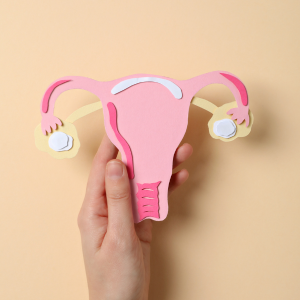
1. Leafy Green Vegetables
- Spinach, kale, and Swiss chard are rich in folate, iron, and vitamin C.
- These nutrients enhance blood flow to the ovaries and support healthy cell division.
2. Berries
- Blueberries, strawberries, and raspberries are high in antioxidants.
- Antioxidants protect eggs from free radical damage, slowing down age-related decline.
3. Nuts and Seeds
- Walnuts, almonds, flaxseeds, and chia seeds provide omega-3 fatty acids and vitamin E.
- These nutrients improve egg membrane integrity and support hormone production.
4. Whole Grains
- Quinoa, brown rice, and oats offer B vitamins and fiber.
- They help maintain stable blood sugar levels, essential for consistent ovulation.
5. Fatty Fish and Healthy Fats
- Salmon, sardines, and avocado provide DHA, EPA, and monounsaturated fats.
- These enhance ovarian blood flow, reduce inflammation, and support hormone synthesis.
Incorporating these foods daily, along with hydration and moderate exercise, creates an optimal environment for healthy eggs. These simple dietary changes are powerful fertility tips to improve egg quality naturally and boost your chances of conception.
Foods That Improve Sperm Quality — Essential Fertility Tips
Sperm health is just as important as egg quality when it comes to conception. Nutrient-rich foods can naturally boost sperm count, motility, and morphology. Following these fertility tips supports male reproductive health and enhances overall fertility.

1. Nuts and Seeds
- Walnuts, almonds, sunflower seeds, and pumpkin seeds are rich in omega-3 fatty acids, zinc, and vitamin E.
- These nutrients improve sperm membrane integrity and mobility.
2. Fatty Fish
- Salmon, sardines, and mackerel provide DHA and EPA omega-3s.
- These healthy fats enhance sperm quality and reduce oxidative stress.
3. Fruits Rich in Antioxidants
- Berries, oranges, and pomegranates contain vitamin C and polyphenols.
- Antioxidants protect sperm DNA and improve overall motility.
4. Leafy Greens and Vegetables
- Spinach, kale, and broccoli supply folate, magnesium, and vitamins B6 and C.
- Folate supports healthy sperm production and reduces chromosomal abnormalities.
5. Whole Grains and Legumes
- Brown rice, oats, lentils, and beans provide fiber, B vitamins, and iron.
- These nutrients regulate hormone levels and support steady sperm production.
Including these foods consistently, along with avoiding smoking, alcohol, and excess stress, creates an optimal environment for sperm health. These fertility tips can naturally enhance sperm quality and increase the chances of conception.
What to Avoid After Ovulation to Get Pregnant — Fertility Tips
After ovulation, your body is in its most fertile phase, and small lifestyle choices can make a big difference in conception. Following these fertility tips helps create the optimal environment for sperm to fertilize the egg and for implantation to occur.
1. High Caffeine Intake
- Excess caffeine can affect hormone balance and reduce fertility.
- Limit coffee, energy drinks, and strong tea to no more than 1–2 cups per day.
2. Alcohol
- Drinking alcohol may interfere with implantation and early embryo development.
- Avoid alcoholic beverages entirely during the fertile window for best results.
3. Smoking and Vaping
- Nicotine and chemicals in smoke reduce blood flow to reproductive organs.
- Quit smoking and avoid secondhand smoke to protect egg health.
4. Stress and Overexertion
- High stress can increase cortisol, which may impact implantation.
- Reduce stress with gentle yoga, meditation, or relaxing walks.
5. Unhealthy or Processed Foods
- Sugary snacks, fried foods, and heavily processed meals may affect hormone levels.
- Focus on nutrient-rich meals with fruits, vegetables, whole grains, and lean protein.
By avoiding these habits after ovulation and following other proven fertility tips, you increase your chances of conception naturally. Small changes during this critical window can have a significant impact on your pregnancy journey.
Conclusion
Boosting your chances of conception doesn’t have to feel complicated or stressful. By putting these 10 proven fertility tips into practice—tracking ovulation, nourishing your body with a fertility-friendly diet, maintaining a healthy weight, and reducing everyday stress—you create the best natural environment for pregnancy to happen.
Remember that egg and sperm health improve gradually, so give your body at least three months of consistent effort to see results. These lifestyle choices not only enhance fertility but also prepare you for a healthier pregnancy and smoother postpartum recovery.
Every couple’s timeline is unique, so be patient with yourselves. If you’ve followed these fertility tips for several months without success, a preconception checkup or fertility evaluation can provide helpful guidance and reassurance.
Most importantly, keep intimacy joyful and the journey positive. With steady habits, mutual support, and the right fertility tips, you’re taking meaningful steps toward welcoming your little one naturally and confidently.

